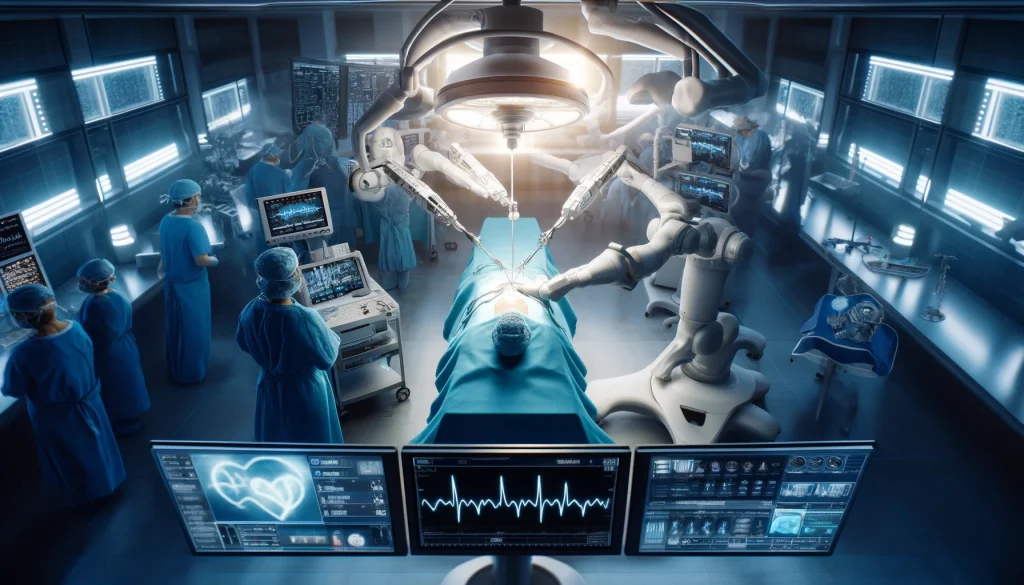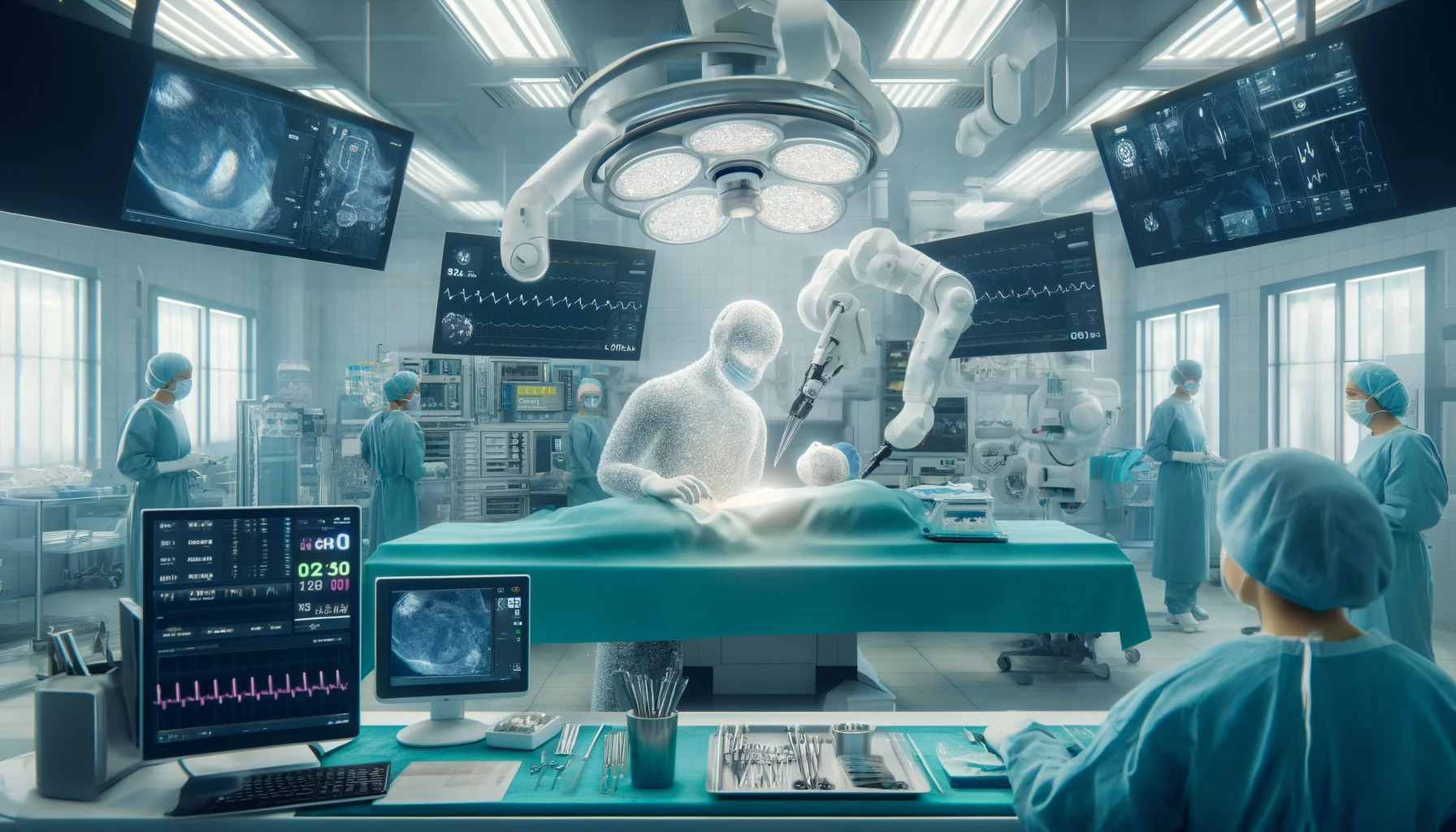Introduction to Artificial Intelligence in Surgery
Artificial Intelligence (AI) has dramatically changed the landscape of healthcare, particularly in the realm of surgery. This technology’s integration into surgical procedures has not only optimized the outcomes but has also introduced a new era of digital assistance in complex medical environments. The adoption of AI in surgical operations provides an unprecedented level of precision and efficiency, revolutionizing how surgeons perform and how patients recover.
Use of Artificial Intelligence in Surgical Operations
AI in surgery encompasses a variety of applications, from preoperative planning to real-time assistance during procedures and postoperative care. The primary goal is to augment the capabilities of human surgeons, leading to improved patient outcomes.
Real-time Data Analysis
AI systems are capable of analyzing vast amounts of data in real time, providing surgeons with critical insights that are beyond human capability to process quickly. This includes data from past surgeries, patient health records, and real-time vital signs, which can be synthesized to guide surgical decisions and anticipate complications before they occur.
Enhanced Imaging and Visualization
AI enhances imaging techniques such as MRI, CT scans, and X-rays by providing more accurate and detailed views of the human body. This capability allows surgeons to plan and execute surgeries with a higher degree of precision. Advanced AI algorithms can also highlight areas of concern on these images, aiding surgeons in focusing their efforts where it is most needed.
Robotic Assistance in Surgery
Robotic surgery, one of the most prominent applications of AI in the field, offers numerous advantages over traditional techniques. These AI-driven robots provide steadier precision during surgeries, reducing human error and enhancing the surgeon’s ability to perform delicate procedures.
Breakthrough AI Technologies Transforming Surgery
AI in Preoperative Planning
By utilizing AI for preoperative simulations, surgeons can anticipate potential challenges and devise more effective surgical strategies. AI systems analyze various possible scenarios in virtual environments to determine the optimal approach for each individual patient.
AI-Driven Surgical Robots
AI-driven surgical robots have transformed from mere assistants to active participants in surgeries. These robots learn from each procedure, continuously improving their algorithms and techniques based on new data.
Postoperative Care and AI
Post-surgery care is critical for patient recovery. AI tools monitor patients’ progress and predict potential complications, enabling timely interventions and personalized recovery plans.
Benefits of Integrating AI into Surgical Procedures
Precision and Accuracy
AI’s ability to process and analyze data with high precision significantly enhances the accuracy of surgical procedures. This results in fewer complications and quicker recovery times.
Reduced Surgical Time
AI and robotic systems streamline many aspects of surgery, often performing tasks more quickly than human hands. This efficiency reduces the time patients spend under anesthesia, which in turn decreases the risks associated with longer surgical procedures.
Patient Outcomes and Recovery
The precision and efficiency of AI-assisted surgeries often lead to better patient outcomes, including reduced pain, minimal scarring, and faster return to normal activities.

Challenges and Limitations of AI in Surgery
Ethical Concerns
The integration of AI in surgery raises significant ethical questions, including the extent of reliance on technology and the potential for machine errors.
Technical Challenges
AI technologies require continual updates and maintenance to ensure accuracy and reliability. There’s also the challenge of integrating AI systems with existing hospital infrastructure.
Acceptance in the Medical Community
Despite its benefits, some resistance to AI exists within the medical community due to fears of job displacement and mistrust in machine-based decision-making.
Case Studies: AI in Action within the Operating Room
Practical applications and case studies illustrate how AI has successfully aided complex surgeries, providing tangible examples of its potential and effectiveness.
Future Prospects of AI in Surgical Fields
As AI technology advances, its potential applications in surgery are boundless. With ongoing research and development, future breakthroughs are likely to continue transforming the surgical landscape.
Conclusion: The Role of AI in Shaping Modern Surgery
The integration of AI into surgical operations marks a significant advancement in medical technology, promising greater precision, improved patient outcomes, and a new standard for healthcare excellence. As AI continues to evolve, its role in surgery will undoubtedly expand, leading to even more innovative and effective treatments.
